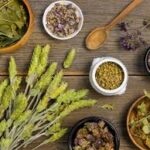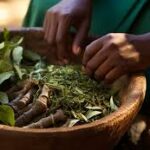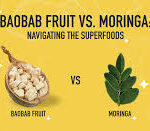Herbal Medicine in Africa: Tradition Meets Science

For centuries, Africans have relied on herbal medicine to treat illnesses, boost immunity, and promote overall wellbeing. From ginger and moringa to neem and bitter leaf, traditional remedies remain central to healthcare for millions across the continent. But in recent years, science has begun to validate some of these practices, while also raising important questions about safety and standardization.
The Rich Heritage of African Herbal Medicine
Traditional healers and herbalists have long been custodians of health knowledge. Remedies often include:
-
Roots and barks (e.g., neem, ginger, turmeric)
-
Leaves and seeds (e.g., bitter leaf, moringa, baobab)
-
Herbal teas and tonics used for cleansing or boosting immunity
These remedies are deeply tied to African identity, culture, and spirituality.
Why Herbal Medicine Remains Popular
-
Accessibility: In rural areas, herbal remedies are more available than modern pharmaceuticals.
-
Affordability: Herbal medicine is often cheaper than prescription drugs.
-
Cultural trust: Many Africans believe strongly in natural healing methods.
-
Perceived safety: “Natural” is often assumed to mean harmless, though this is not always true.
Science and Herbal Remedies: What We Know
Recent research shows that herbs like moringa are nutrient-rich, ginger has anti-inflammatory properties, and neem contains compounds with antimicrobial effects. Some herbal medicines are being studied for their potential in managing diabetes, malaria, and hypertension.
However, not all remedies are safe. Issues include:
-
Overdose risks from unmeasured quantities
-
Toxicity when herbs interact with prescribed drugs
-
Lack of standardization in preparation methods
-
Delay in treatment when patients avoid hospitals for serious conditions
The Path Toward Integration
The future of healthcare in Africa may involve integrating traditional and modern medicine. Steps needed include:
-
Scientific testing of popular herbal remedies
-
Standardization to ensure safe dosages
-
Training herbalists to recognize when to refer patients to hospitals
-
Government regulation to protect consumers
Everyday Use of Herbs for Wellness
Africans can still safely enjoy herbs in everyday life by:
-
Adding moringa leaves to meals for vitamins and minerals
-
Drinking ginger or hibiscus tea for relaxation
-
Using neem for skin care under proper guidance
-
Consulting healthcare providers before mixing herbs with prescribed drugs
Final Thoughts
Herbal medicine in Africa is more than healthcare — it is history, culture, and identity. While traditional remedies offer great promise, science must work hand-in-hand with tradition to ensure safety and effectiveness. By combining the wisdom of the past with the tools of modern research, Africans can build a healthier future.
Written by Fawzi Rufai, Medically Reviewed by Sesan Kareem



